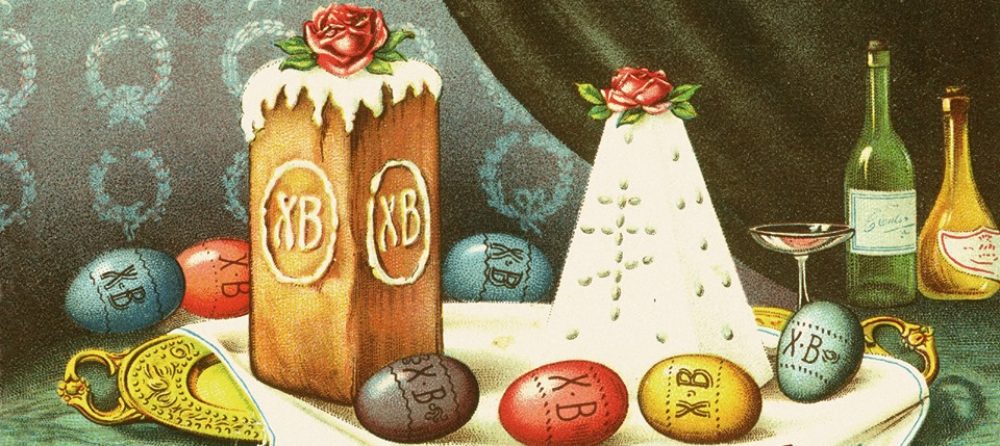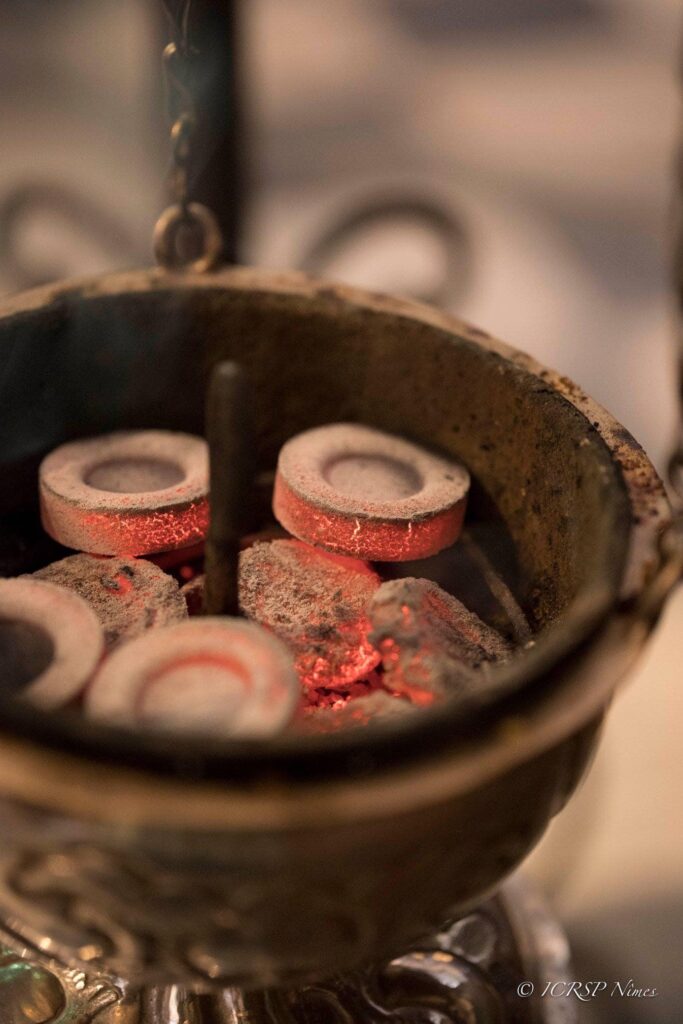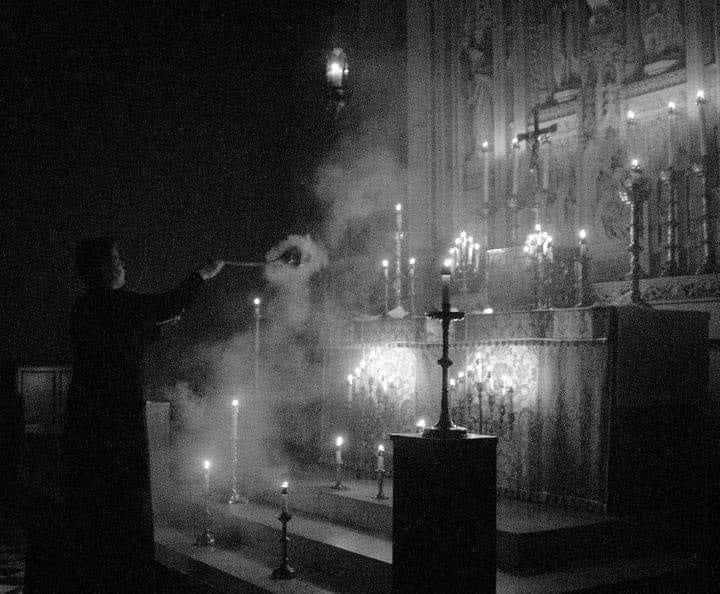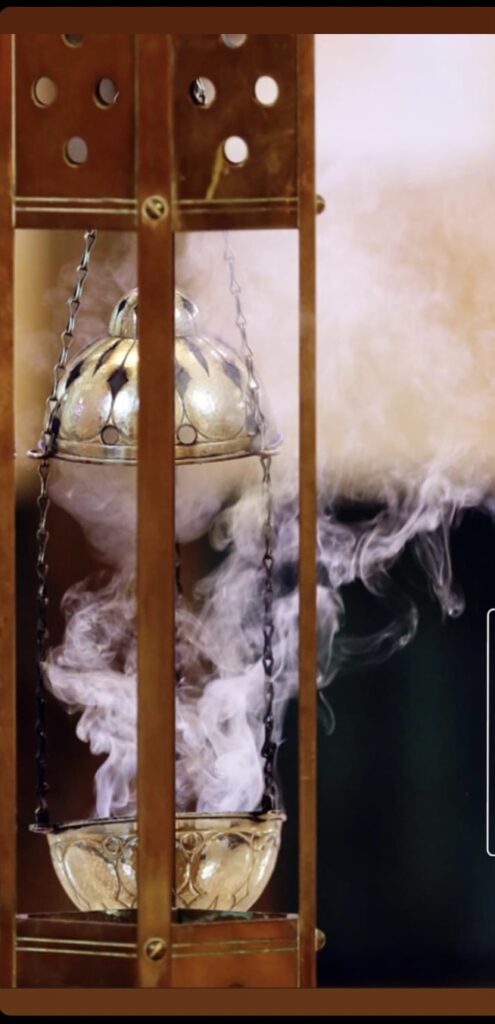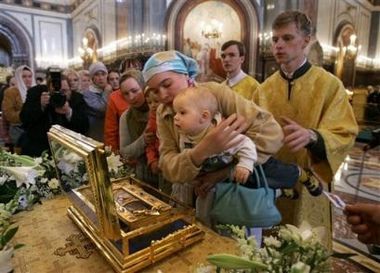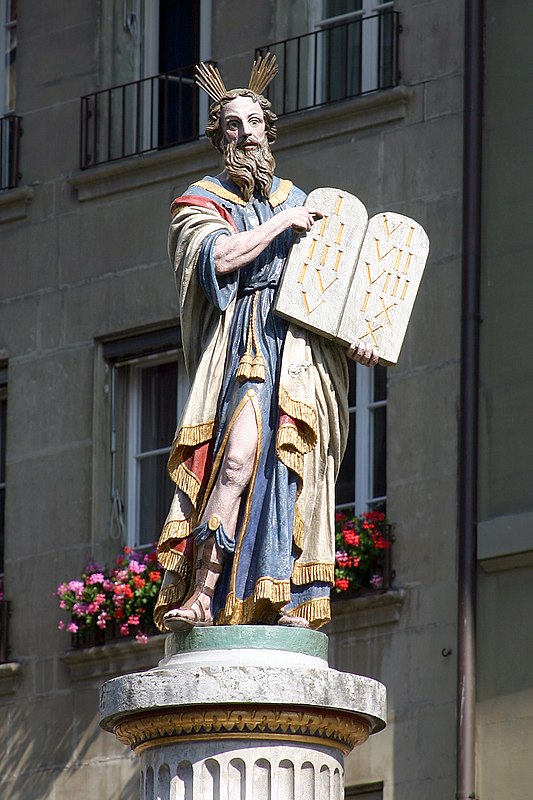
The Moses Fountain in the Old City of Bern, Switzerland shows Moses with rays of light. But it was common to depict Moses with horns because in Latin, the word for “rays of light” is only one or two letters different from the word for “horns” so the Latin text of Exodus read, “Horns came from Moses’ face” rather than “Rays of light came from Moses’ face.” Whether the original translation was mistaken, or copyists simply made a mistake that got repeated, the result was the same: Moses was usually depicted in Western Christian art with horns.
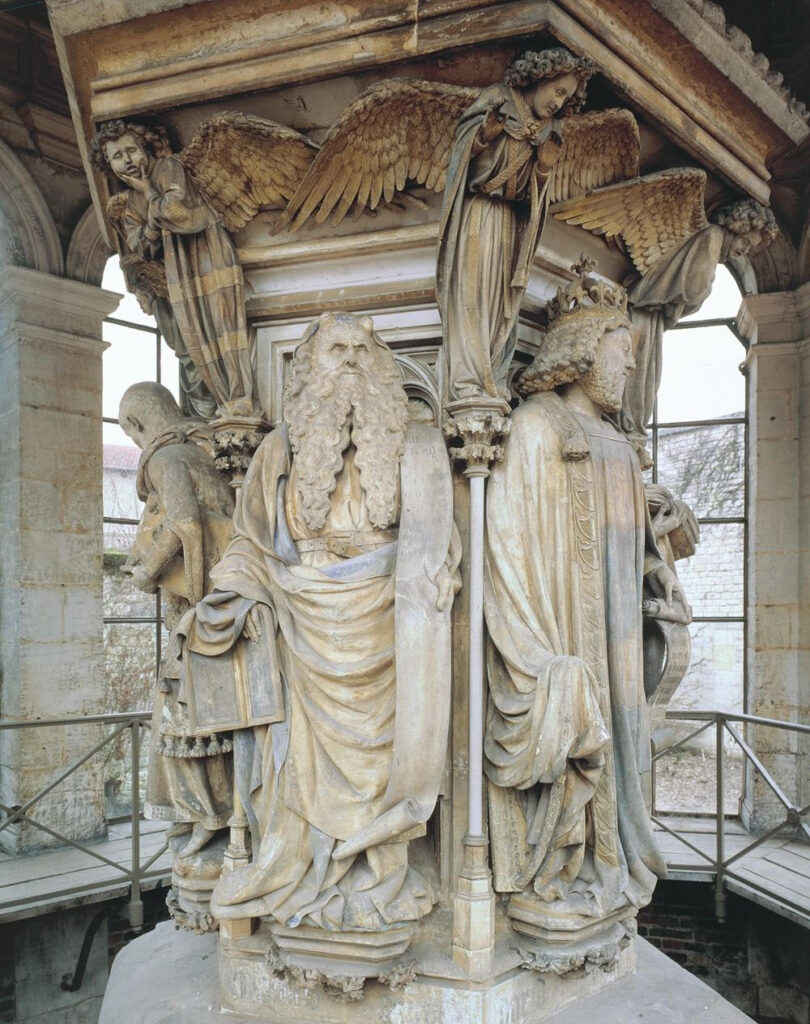
If the ministry of death, carved with letters on stone, came into being with glory, so much so that the Israelites could not gaze at Moses’ face because of the glory of his face which was vanishing, surely the ministry of the Spirit will be even more glorious. For if glory belongs to the ministry of condemnation, surely the ministry of righteousness abounds with even more glory! (2 Cor. 3:7-9)
St. Paul is referring to the story in Exodus about Moses and the Ten Commandments. According to the Old Testament, Moses spent 40 days atop Mt. Sinai while God carved the Ten Commandments on tablets of stone. The mountaintop was hidden by thick clouds and lightning; none of the people down below could see what was happening. When Moses finally came down the mountain with the stone tablets, no one could look at him because his face was so bright. He had spent time in the presence of God and God’s glory had saturated Moses’ skin. Moses had to cover his face if the people were to be able to look at him. Eventually, the glory began to fade but …. Anytime Moses went into the Tent of Meeting to speak with God, the same thing happened: the glory of God saturated Moses’ flesh and he had to cover his face when he came out because his skin was so bright no one could look at him.
St. Paul says that if the commandments which God revealed on Mt. Sinai and throughout the time of Israel wandering in the wilderness–which had dire punishments attached to them all and only taught people what they could NOT do and condemned them because it was impossible to keep all the commandments–then the commandments of the New Testament and the gift of the Spirit (which makes the people righteous, not condemned) must be even more glorious. (Hebrews 10 points out, “A man who violated the law of Moses dies without mercy at the testimony of two or three witnesses.”)
The apostles see the glory of God shining around Jesus at the Transfiguration on Mt. Tabor. In the cloud of light, they see Moses and Elijah talking with Christ. In the Acts of the Apostles, the face of St. Stephen shines with the glory of God and no one can look at him. Throughout history, saints have been seen shining with the glory of God. Sometimes, it was the disciples of the saints who were also seen shining; just as Moses spent time with God and saturated with divine glory, those who spend time with the saints who are saturated with glory, can also shine with the glory of God themselves.
There was a famous conversation between St. Seraphim of Sarov (d. 1833) and one of his disciples:
I replied: “I cannot look, Father, because your eyes are flashing like lightning. Your face has become brighter than the sun, and my eyes ache with pain.”
Father Seraphim said: “Don’t be alarmed, your Godliness! Now you yourself have become as bright as I am. You are now in the fullness of the Spirit of God yourself; otherwise you would not be able to see me as I am.”
After these words I glanced at his face and there came over me an even greater reverent awe. Imagine in the center of the sun, in the dazzling light of its midday rays, the face of a man talking to you. You see the movement of his lips and the changing expression of his eyes, you hear his voice, you feel someone holding your shoulders; yet you do not see his hands, you do not even see yourself or his figure, but only a blinding light spreading far around for several yards and illumining with its glaring sheen both the snow-blanket which covered the forest glade and the snow-flakes which besprinkled me and the great Elder. You can imagine the state I was in!
“How do you feel now?” Father Seraphim asked me.
“Extraordinarily well,” I said.
“But in what way? How exactly do you feel well?”
I answered: “I feel such calmness and peace in my soul that no words can express it.”
Righteousness and light. Divine glory. To be saturated with glory is to be filled with the Peace of God which passes understanding and this is not an experience that was limited only to ancient times or only the great saints. It is an experience that is available to anyone who honestly seeks God.
And where God’s glory and peace are found, the fragrance of his holiness is never far behind!
